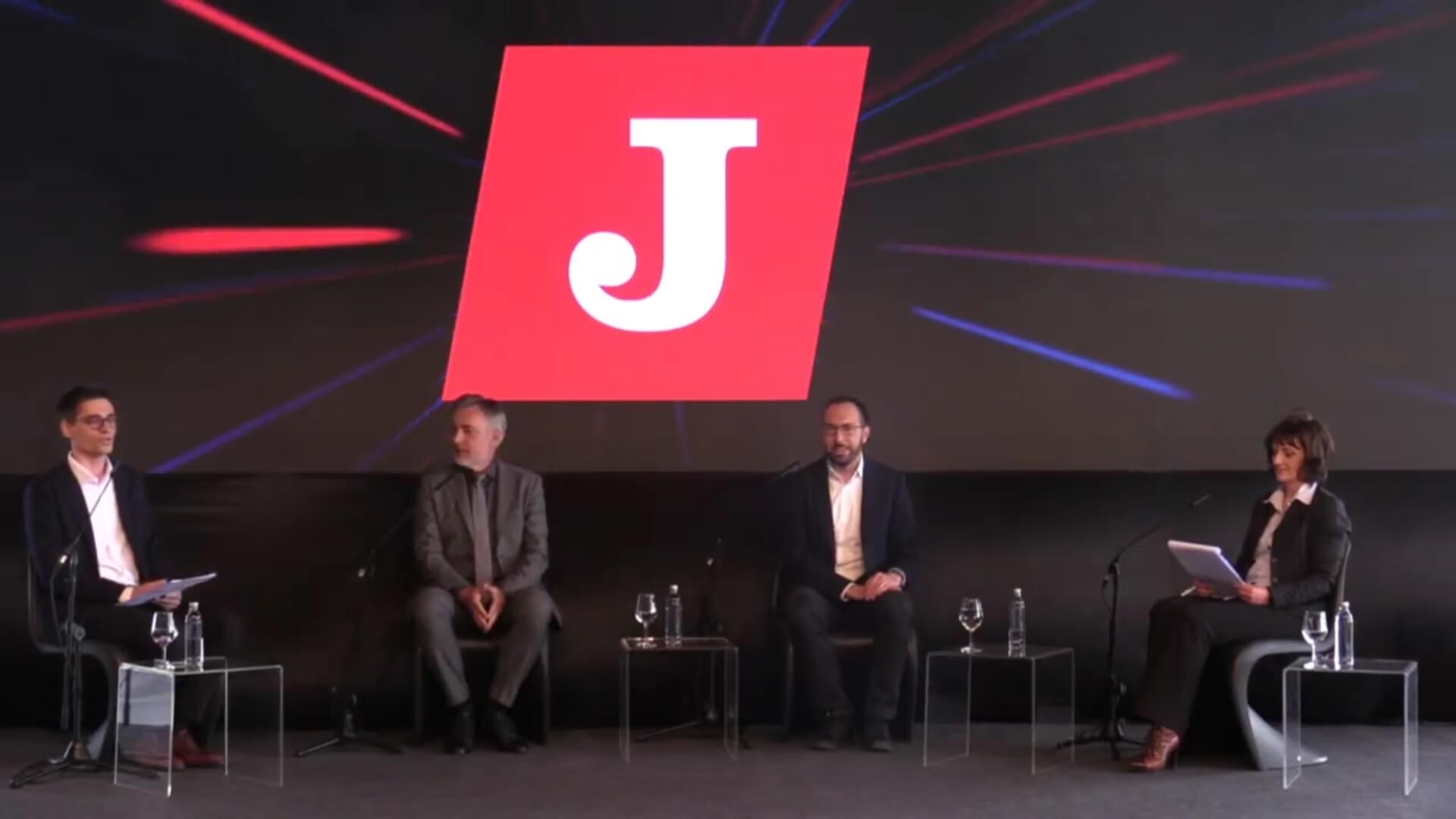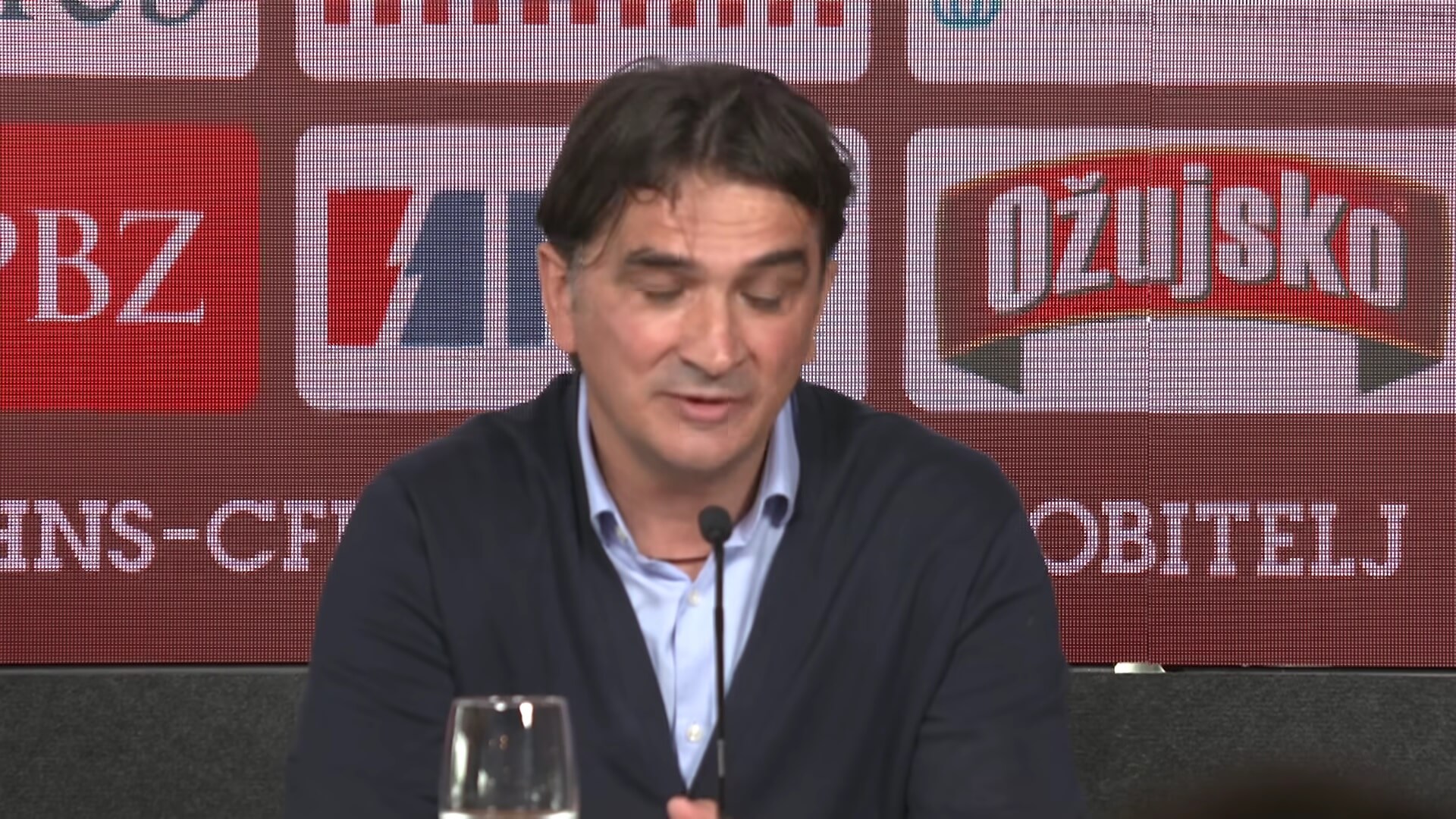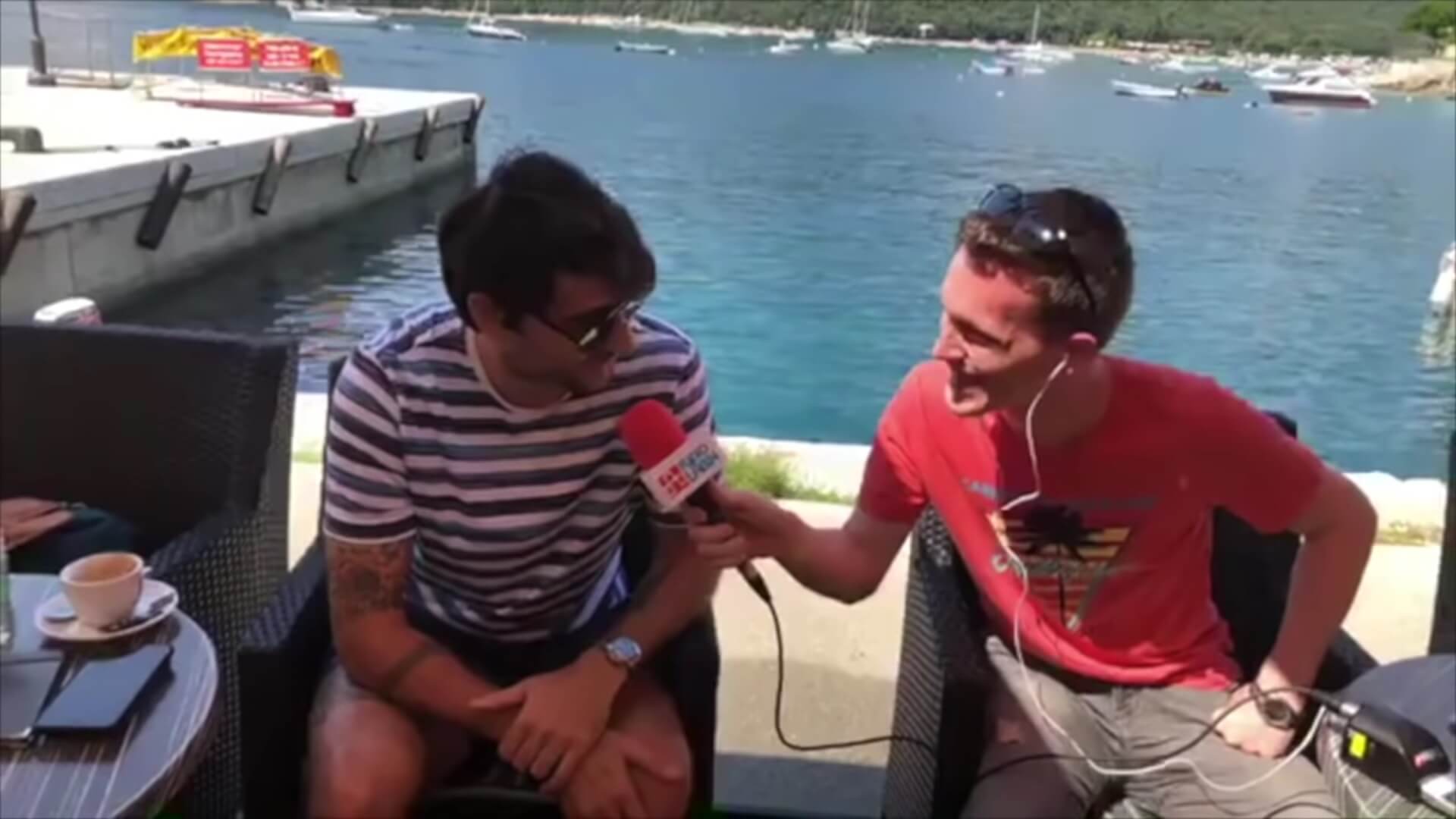Voter Turnout in Local Runoff by 4.30 PM Lower Than in First Round
ZAGREB, 30 May, 2021 - The turnout by 4.30 pm in Sunday's local election runoff was 29.18%, 6.36% less than by the same time in the first voting round two weeks ago, the State Electoral Commission (DIP) said.
Four years ago, the turnout in the local election runoff by 4.30 pm was 27.45%.
The turnout in Zagreb has been 34.33% as against 34% in the first round, 32.3% in Split (33.7% two weeks ago), 21.53% in Osijek (28.7% two weeks ago), and 26.33% in Rijeka (28.2% two weeks ago).
Gospić recorded the highest turnout by 4.30 pm (51.05%), followed by Pazin (38.84%).
Broken down by county, Lika-Senj County has registered the highest turnout (44.03%), followed by Krapina-Zagorje County (40.56%), while Zagreb County and Istria County have registered the lowest turnouts (22.91% and 23.32% respectively).
The turnout in earthquake-struck Sisak-Moslavina County has been 31.4%.
Polling stations close at 7 pm. DIP will release the first preliminary results at 8 pm.
For more on politics in Croatia, follow TCN's dedicated page.
For more news on Croatia, CLICK HERE.
Polling Stations Opened for Second Round of Local Elections in Croatia
ZAGREB, 30 May, 2021 - All the 5,496 polling stations were opened at 7 a.m. on Sunday throughout Croatia for the election runoffs for mayors of 57 cities and 87 municipalities as well as for the prefects of 14 counties.
The State Electoral Commission (DIP) will release the first results of today's voting on its website at 8 p.m. The ballots from 90% of polling stations should be counted by 10 p.m.
During the second round of voting, 3,231,000 citizens are eligible to vote. The two candidates who received the highest number of votes in the 16 May elections in their constituency are vying in the 30 May runoffs. The mayoral and county head candidates who won more than 50% of the vote in the first round of the elections two weeks ago are the outright winners.
The course of today's voting is being observed by 8,334 monitors, and the lion's share of them have been proposed by political parties running in the elections, while a mere 17 monitors are being at polling stations on behalf of nongovernmental organisations.
Anti-epidemic measures are being implemented at polling stations.
Voters going to the polls on Sunday are required to wear protective masks and they are also advised to have their own pens. Although the epidemiological situation has improved since the first round of the voting, the same anti-epidemic measures will be implemented.
For more about politics in Croatia, follow TCN's dedicated page.
For more news about Croatia, CLICK HERE.
Tomislav Tomašević: War Veterans Programmes Won't be Halted, City Offices to be Merged
ZAGREB, 26 May, 2021 - Zagreb mayoral candidate Tomislav Tomašević said on Wednesday it was not true that city programmes for war veterans would be halted once his We Can! party came to power but that rather city offices would be merged to improve coordination of city programmes.
"As regards accusations that programmes intended for war veterans would stop if we come to power, I can say that that is not true. I have said on more than one occasion that we will merge offices, I was not speaking about the cancellation of programmes, because I do not know of any other capital city in the world that has 27 departments," Tomašević told a news conference.
On being given police protection
Asked by reporters if he had been given police protection, Tomašević told reporters to ask police about that because security assessment was not what he and his colleagues did.
"We have been in touch with police regarding security risks. But the police are the ones to make decisions on the matter, and I cannot speak on their bahalf about that," Tomašević said.
Asked about the Otvoreno political programme on Croatian Television of Tuesday, in which he faced off against his rival in the 30 May runoff for Zagreb mayor, Miroslav Škoro of the Homeland Movement, and if he would sue him for false claims, Tomašević said that he was focused on his campaign now.
"That did not happen only yesterday. We are talking about an unbelievable misrepresentation of facts, someone is accusing you of covert campaign financing while at the same time they report zero donations," said Tomašević.
He noted that the internet was full of paid advertisements with false information on the We Can! platform and his family.
He added that Željka Markić of the In the Name of the Family civil society group yesterday made one more slanderous claim against him, saying that he had a gross salary of HRK 25,000 in a nongovernmental organisation.
"She should say which NGO she was referring to and when it happened," he said, noting that an unprecedented hate-mongering campaign was under way on the political scene in Croatia.
For more about politics in Croatia, follow TCN's dedicated page.
87 Municipalities, 57 Cities, 14 Counties to Hold Runoffs on Sunday
ZAGREB, 25 May, 2021 - After the repeat of local polls in seven municipalities and cities last Sunday, the State Electoral Commission (DIP) on Tuesday said that the second round of the election would be held for 87 municipal mayors, 57 city mayors including the mayor of the capital city of Zagreb and 14 county prefects on 30 May.
There are total of of 432 cities and municipalities where the second round of the elections is to be held or at 5,497 polling stations on Sunday, 30 May.
DIP recalls that the local elections will be repeated at eight polling stations in the Municipality of Kneževi Vinogradi as well as at one polling station in the election for city councillors in the Varaždin City Assembly on 30 May.
For more about politics in Croatia, follow TCN's dedicated page.
34 Candidates in Local Elections Haven't Submitted Financial Reports
ZAGREB, 23 May, 2021 - The legal obligation to submit financial reports seven days before the second round of local elections has been met by 283 out of 317 candidates, the State Electoral Commission said on Sunday.
The reports, including expenses, contributions and media advertising discounts, had to be submitted by midnight Saturday.
Reports were submitted by all 30 candidates for county prefects and the mayor of Zagreb as well as their deputies, 98 out of 110 mayoral candidates and 155 out of 177 candidates for municipal heads and their deputes.
For more about politics in Croatia, follow TCN's dedicated page.
For more about news in Croatia, CLICK HERE.
Highlights of the Week: 5 Big Events in Croatia from May 17-23, 2021
May 23, 2021 - TCN's highlights of the week. A look at the events in Croatia from May 17 through the selection of TCN's reporter Ivor Kruljac.
From Local elections to released details of the Euro 2020 championship strategy to the release of Zoran Mamić. Add Besana company attempting to boost its position in Croatia, and you have a truly exciting week. Here are the highlights.

screenshot / Jutarnji list
Highlights of the Week: Zagreb mayor candidates Tomašević and Škoro had a debate ahead of the second round of elections
Jutarnji List invited on Friday mayoral candidates Miroslav Škoro (Homeland Movement), and Tomislav Tomašević of the green-left party We Can! to debate ahead of new elections.
In the first round of the elections, We Can! earned 147.631 votes (45.15%), while Homeland Movement had 39.789 votes (12.16%). Before officially entering the second round, Škoro declared Tomašević and We Can! party extreme left and pushed the narrative of elections as an ideological referendum among right-wing and conservative circles. Škoro also accused We Can! of being foreign mercenaries working for a philanthropist George Soros or wanting to revitalize Yugoslavia and Škoro's associate Zlatko Hasanbegović earlier in the week called We Can! a lesbian syndicate. Additionally, Nikola Grmoja (Most Party) stated for N1 that We Can! are Soroshians and accusations of their weird name-calling saw a random generator on the internet designed to mock these terms by random options of name-calling. Meanwhile, Tomašević continued the campaign talking about solutions to the problems Zagreb is currently facing but occasionally makes remark accusations while keeping it clean. The debate on Jutarnji List saw similar rhetoric from both candidates in their public performances, and overall, at least for the people of Zagreb, May 30 can't come soon enough.
screenshot / Hrvatski nogometni savez
Highlights of the Week: Zlatko Dalić announces preliminary EURO 2020 Croatia player list
Coach Zlatko Dalic has announced the preliminary EURO 2020 Croatia player list on Monday. Luka Modrić (Real Madrid), Marcelo Brozović (Inter), Milan Badelj (Genoa), Mateo Kovačić (Chelsea) are some of the names that made it on the list.
The Croatia national team has entered the last month of preparations for the European Championship, which opens on June 13 at Wembley against England at 3 pm.

screenshot / RTL
Highlights of the Week: Zoran Mamić released from custody
Former Dinamo football coach Zoran Mamić will remain free while in Bosnia and Herzegovina; however, he will have to report to the police once a week, and his personal documents have been temporarily confiscated, the court in Bosnia and Herzegovina decided on Wednesday.
Zoran Mamić was arrested early Wednesday morning by officers from the State Investigation and Protection Agency (SIPA) based on an arrest warrant issued against him in Croatia.
After that, Mamić was handed over to the court in Sarajevo. Judge Branko Perić determined his status, including his citizenship of BiH. The judge ruled that Mamić would remain free with precautionary measures and was ordered to give in his personal identification documents.
The court did not discuss the matter of Mamić's extradition, considering that Croatia has not sent a formal request yet.

screenshot / Radio Labin
Highlights of the Week: Former football player Vedran Ćorluka new Croatian assistant coach
The new Croatia national team assistant coach Vedran Ćorluka was officially presented by coach Zlatko Dalić at a press conference in Zagreb ahead of EURO 2020.
Although there was a lot of speculation, Croatian football player Vedran Ćorluka officially announced the end of his playing career and was confirmed as the new Croatia assistant coach on Monday.
"I did not plan it, but the moment has come," said Ćorluka at the press conference at which coach Zlatko Dalić presented the list of players for the upcoming European Championship.

Pixabay
Highlights of the Week: Italian company Besana strengthening position in Croatia
The Italian company Besana, which is otherwise one of the strongest European companies in the production and processing of nuts and dried fruit, is working to further strengthen its position here in Croatia.
As TCN reported on Monday, the Italian company Besana currently has 50 subcontractors located in Croatia, from whom it buys about 100 tonnes of hazelnuts per year. But, much more can be expected if their plans go well.
To learn more about Croatia, have a look at our newly launched TC website.
For more about news in Croatia, follow TCN's dedicated page.
President Zoran Milanović Comments on Outcome of Local Elections, Sources of Parties Funding
ZAGREB, 19 May (Hina) - President Zoran Milanović said on Wednesday that he could agree with comments that the Social Democratic Party (SDP), whose member he used to be before he became the president, had experienced a fiasco in the elections for Zagreb mayor and the city assembly.
When it come to the performance of the SDP and other political parties in the local elections in other cities and municipalities in Croatia, Milanović said that there would be interesting things and that one should wait for the outcome of the second round of the voting on 30 May.
As for insinuations by the Homeland Movement (DP) party that the We Can political party and its coalition partners had received financial support from abroad, Milanovć said that the claims "are insane."
That can be claimed by people whose whole life is focused on earning money and royalties. This is not only insulting but also insane for Croatia in the 21st century, said Milanović.
He went to on to say that the recent campaigns by political parties were much cheaper than, for instance, the campaign conducted by the deceased mayor of Zagreb, Milan Bandić, in 2009.
Milanović accused Bandić of "having robbed the SDP which I led at the time." Millions were spent then. That was paid by private donors, clients, mobsters of every sort, and in the end the party had to settle the bills, Milanović said.
He went on to say that political parties were financed from the state budget and not by some fanatic sects or Soros, alluding to the Hungarian-born American billionaire investor George Soros who founded the Open Society Foundations and who is perceived as a supporter of progressive and liberal political causes.
Milanović recalled that the We Can party won seats in the parliament in the 2020 elections, and this (the state budget) was the source of "legal and abundant financing", the president elaborated adding that any other source of financing of political parties is suspicious.
For more about politics in Croatia, follow TCN's dedicated page.
Electoral Roll to be Updated by Next Election
ZAGREB, 19 May, 2021 - Public Administration Minister Ivan Malenica said on Wednesday that by the time of the next election the electoral roll will have been cleaned up, following comments by reporters that it does not reflect the real number of voters considering how many people have emigrated but are still registered.
There are 3,660,165 voters registered in the electoral roll that the ministry has for the local election on 16 May, with 60,000 fewer eligible voters compared to the election in 2017, Malenica told reporters.
"Naturally, there are certain situations when the relevant bodies cannot determine whether a certain person has residency in Croatia. That is up to them to determine and that is a data that the Ministry of Justice and Public Administration has eliminated as being relevant to the electoral roll," said Malenica.
Asked whether 250,000 Croatians who registered in Germany in 2013 had cancelled their registration in Croatia, Malenica briefly said that that question should be sent to the Interior Ministry.
He believes however, that it is necessary to check the relevancy of data in the electoral roll against the population census and residency and address people are registered at.
Asked whether he would propose for the electoral roll to be audited, because it is constantly being said that too few people take to the polls, Malenica said that regulations would be changed before the next election and that the electoral roll would be updated.
For more news about politics in Croatia, follow TCN's dedicated page.
For more news about Croatia, CLICK HERE.
Local Elections Main Topic in Croatian Parliament
ZAGREB, 19 May, 2021 - Sunday's local elections were the main topic of speeches in the Croatian parliament on Wednesday morning.
Dalija Orešković, speaking on behalf of the Civic Liberal Alliance (GLAS) and Centre group, said that the results of the vote showed that citizens were becoming aware that government could be changed. She urged the opposition in parliament to begin dialogue on the reform of the electoral legislation and administrative structure of Croatia.
"We have three years ahead of us to reform electoral legislation and electoral units to make them constitutional and fair, to ensure that each vote counts equally, and to reduce the number of counties, towns and municipalities," Orešković said.
She congratulated "all new progressive forces that made it into the second round of elections, thus threatening the survival of the petrified and corrupt structures of the existing government."
Andreja Marić of the Social Democratic Party (SDP) warned of double standards used by the national coronavirus response team, which allowed the opening of the borders on election day despite the epidemiological criteria in place.
"What kind of message does that send to the public? How can we expect people to comply with the measures if such decisions that mock us all are made?" Marić asked.
She recalled that medical professionals had warned that they expected a rise in the number of new infections in the next three weeks as a result of this decision. "The ruling parties heed only messages that suit them politically," Marić said.
Silvano Hrelja of the Croatian Peasant Party (HSS) and Croatian Pensioners' Party (HSU) group drew attention to the low turnout. "Those most dissatisfied again stayed at home," he said.
For more news about politics in Croatia, follow TCN's dedicated page.
For more news about Croatia, CLICK HERE.
70 Cities Elect Mayors in 1st Round of Elections
ZAGREB, 18 May, 2021 - During the local elections held throughout Croatia on 16 May, a total of 70 cities managed to elect their heads in the first round of voting, while others will have mayoral runoffs on 30 May.
Of those 70 mayors, who clinched the victory in the first round of voting when they gained the support of more than 50% of the voters who turned out for the elections, 36 winners are from the Croatian Democratic Union (HDZ), or six fewer than in 2017, whereas 13 Social Democratic Party (SDP) mayoral candidates gained outright victory, or one more than in the first round of the local elections in 2017.
Seven female mayors winners in first round
Of those 70 mayors elected in the first round of the elections, seven are women.
According to the report provided by the gradonačelnik.hr portal, there is a rising trend in the election of mayoral candidates who are not members of political parties and who are introduced as independent candidates. Ten independent mayors were elected on Sunday.
Donja Stubica mayor reelected with support of more than 83% of voters
Of the winners with an outright victory on 16 May, the most successful mayor who managed to gain the largest support was independent Nikola Gospočić, who was reelected for another term in Donja Stubica with 83.01% of the voters who went to the polls voting for him. In the previous term, he was a member of the SDP party and left it before these elections.
Another independent mayor, Dinko Burić, won 82.15% of the support for his new mayoral term in the eastern city of Belišće.
In terms of the percentage of support, Darijo Vasilić of the regional PGS party ranks third, winning 80.26% of votes for another mayoral term in the City of Krk.
Of the regional parties, the Istrian Democratic Party (IDS) remains the strongest. In the first round of the voting, five IDS candidates were elected mayors.
Four biggest cities to have mayoral runoffs
Zagreb
Tomislav Tomašević of the We Can!, New Left, ORAH and For the City coalition took the lead in the mayoral race for Zagreb on Sunday, winning 45% of votes, and will face-off with Miroslav Škoro of the Homeland Movement party (12%) in the second round of the elections.
Split
In the biggest Croatian Adriatic city, Ivica Puljak (Centre) and Vice Mihanović (HDZ) will face off in the 30 May runoff. Puljak won 26.82% and Mihanović 23.23%.
Rijeka
In the northern coastal city of Rijeka, the current deputy mayor Marko Filipović (SDP, HSU, IDS, HSS) won 30.25% of votes, followed by independent Davor Štimac (16.10%).
Osijek
In the eastern city of Osijek, Ivan Radić (HDZ) won nearly 39% of votes, ahead of independent Berislav Mlinarević, backed by the Homeland Movement and Bridge (about 20%), and they will vie in the second round of the elections on 30 May.
For more about politics in Croatia, follow TCN's dedicated page.


